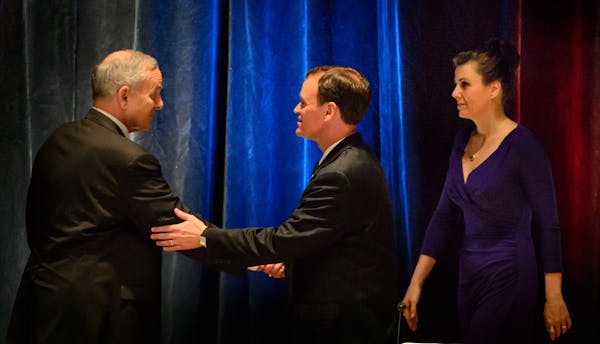DALLAS – The man who has become the first Ebola patient to develop symptoms in the United States told officials at Texas Health Presbyterian Hospital on Sept. 26 that he had just arrived from West Africa but was not admitted that day because that information was not passed along at the hospital, officials acknowledged Wednesday.
The man, Thomas Eric Duncan, was sent home under the mistaken belief that he had only a mild fever, a hospital administrator said; the information that he had traveled from Liberia, one of the nations at the heart of the Ebola epidemic, was overlooked.
Duncan came back to Texas Health Presbyterian Hospital on Sept. 28 and was admitted for treatment, but in those two days in between, his contacts with a number of people — including five schoolchildren and the medics who helped transport him to the hospital — potentially exposed them to Ebola, forcing officials to monitor and isolate them in their homes and to begin a thorough cleaning of the schools the students attended. Duncan is now in serious but stable condition.
Duncan — a Liberian national in his mid-40s who had come to the United States to visit relatives in Dallas — had direct contact with a woman stricken by Ebola in Monrovia, the Liberian capital, on Sept. 15, days before he left Liberia, the woman's parents and Duncan's neighbors said.
The family of the woman, Marthalene Williams, 19, took her by taxi to a hospital with Duncan's help after failing to get an ambulance. Williams was turned away for lack of space in the hospital's Ebola treatment ward, the family said, and they took her back home hours before she died. Duncan helped carry her because she was no longer able to walk. In the taxi, Williams, who was seven months pregnant, had been convulsing.
Duncan flew on Sept. 19 from Monrovia to Brussels, where he took United Flight 951 to Washington Dulles Airport and continued to Dallas/Fort Worth on Flight 822, arriving Sept. 20.
In Dallas, the case was being handled with extraordinary caution and raised widespread concern. There was no indication of panic among residents in the largely Hispanic and African neighborhood where Duncan was staying. But misinformation about how the disease spreads was everywhere, even as local, state and federal health officials continued to make clear that Ebola is not an airborne illness and is spread only through direct contact with the bodily fluids of an ill person.
"We're confident that it's isolated and it's being contained, but everyone is working tirelessly to double- and triple- and quadruple-check their work, to make sure that we've done an absolutely thorough job of identifying anyone who might be at any risk," said the top elected official of Dallas County, Judge Clay Jenkins.
Officials said that they believed Duncan came into contact with 12 to 18 people when he was experiencing active symptoms and when the disease was contagious, and the daily monitoring of those people had not yet shown them to be infected.
There are an estimated 10,000 Liberians living in four North Texas counties.
Sign up for Star Tribune newsletters

Sandhill cranes coming to roost
Oscar-winning actor Maggie Smith dies at 89

